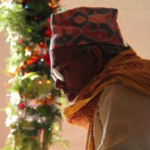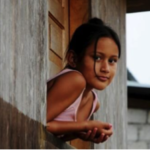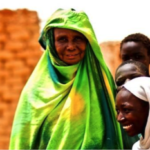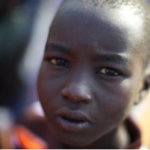Solitary confinement and severe torture in Yemen left Ayub with deep depression and debilitating nighttime terror.
Forcibly taken from her family in rural Guatemala as a child, Gabriela endured a decade of isolation and severe abuse. Numbing her physical and emotional pain was her only means of survival.
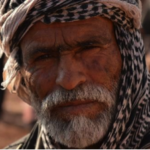
After a traumatic brain injury caused by a bomb explosion that debilitated his wife, Karam was left with the overwhelming responsibility of supporting his family in their new home.
Barati miraculously survived several genocidal massacres in Burundi. Upon resettling in the United States, she was left to confront her devastating trauma and losses.
Growing up with the ubiquitous fear and insecurity of a desolate refugee camp in the Horn of Africa, Negasi believes he never experienced a childhood.
Solitary Confinement and Night Terrors: Ayub
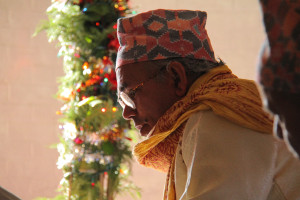 Trauma
Trauma
Ayub was a university student when political unrest and violence escalated in Yemen. Arrested by security forces at a peaceful protest and detained for months, he was severely tortured and kept in solitary confinement. Seriously injured and ill from malnutrition and unsanitary conditions, and forced to leave his family behind, Ayub fled Yemen immediately after his release to save his life.
Recovery
Granted protection in the United States, Ayub continued to experience the aftermath of his torture. He feared for his life and was terrified of the dark. He suffered from severe insomnia and was continuously awakened by nightmares filled with the sounds of prisoners’ screams. Ayub’s recovery relied on the healing effect of someone bearing witness to his suffering, terror, and shame. Speaking of his trauma in the presence of another — with the safety to express his emotional pain and anger — allowed Ayub to begin his recovery. His sleep improved, his deep depression lifted, and his epileptic seizures remitted. He was able to begin working and returned to some activities in his field of interest. After years of feeling shrouded in darkness, Ayub could finally begin to see light.
Fragmentation of Self and Memory: Gabriela
Trauma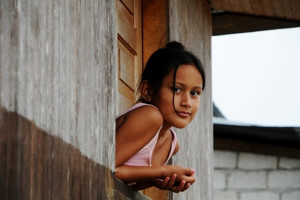
Growing up in a Mayan village in Guatemala, Gabriela was abducted from her family as a young girl. She was held in captivity and complete isolation for a decade, never seeing her family again. She survived intense physical, emotional, and psychological abuse, and became a mother in early adolescence. Her only way to endure this relentless trauma was through dissociation — shutting out thoughts and feelings to protect herself from the pain. Years later, Gabriela continues to struggle with frequent episodes of dissociation, during which she loses her memory and sense of time. She is frightened by these lapses in consciousness and feels disconnected from herself.
Recovery
Gabriela’s healing journey has involved carefully addressing the coping mechanisms developed in response to her trauma, which had come to undermine her safety and well-being. Through processing her experiences and gradually rebuilding her sense of self, Gabriela has seen a reduction in her struggles with suicidality, and her chronic migraines have become less frequent. Gabriela has also learned to read and write in Spanish and is now working on learning English. With her improved literacy, she feels more capable of navigating her new environment. Additionally, Gabriela has been reunited with her children and is beginning to restore the family connections that were lost to her for so long.
Traumatic Brain Injury in Afghanistan: Karam
Trauma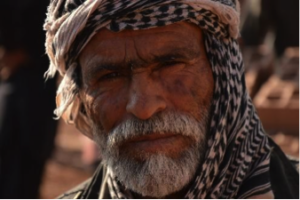
Karam and his family became targets due to his role assisting the U.S. military in Afghanistan. He was detained and tortured twice, and a bomb was thrown at his family’s home. The explosion killed Karam’s younger sister and caused significant cognitive damage to his wife, leaving her with a traumatic brain injury. Karam received a visa and fled Afghanistan with his wife and two young children.
Upon arriving in the United States, Karam struggled with the combination of his wife’s difficulties in caring for their children without extended family support, long working hours with low pay, and living in a dangerous neighborhood. His anxiety and depression worsened as he struggled to meet the basic needs of his family, leading to conflict with his wife and children.
Recovery
The resettlement agency that had assisted Karam’s family noticed their declining situation and referred them for psychological support. Prior to this, Karam had not had the opportunity to share his experiences or the stress of caring for his wife in a new and challenging environment. With the space to express his concerns, Karam’s anger began to subside, and tensions at home gradually eased. As family stability improved and symptoms of distress lessened, Karam found a better job to support his family. Slowly, they began to make new friends, build a support network, and integrate into their new community.
Echoes of Genocide: Barati
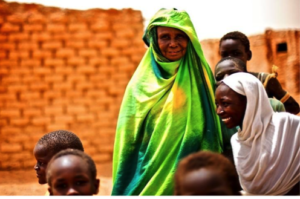 Trauma
Trauma
Barati came from a rural cattle farming community in Burundi. Her husband was killed, and she and her three children were separated when militias attacked their village. They did not know who survived until they reunited in a camp a decade later. Barati miraculously survived several attacks on her community. After the initial assault, she was imprisoned, beaten, and tortured, resulting in the loss of her baby. The men and boys who were captured were dismembered in front of the women and girls and dumped into mass graves. The women were rescued just in time. Years later, the camp where Barati and her children lived was attacked, and most residents were killed. Barati and her youngest child survived by being left for dead under a pile of fallen bodies. Her two other children were outside the camp during the attack. After a long wait, they were resettled together in the United States.
Recovery
Upon arrival in California, Barati and her family were lost and overwhelmed. She could not sleep, and was consumed with fear and sadness. She felt disoriented and could not leave their apartment, while her children struggled to adapt, learn English, and find work. They were on the verge of collapse until they found the support of a treatment program for those who have experienced severe trauma. Barati began weekly individual therapy, where she could share her story as many times as needed, with a compassionate listener present. Her children also received individual and family therapy, and intensive case management helped them access the medical, social, and legal support they needed. Barati was connected to a caring doctor and began taking medication to help with her symptoms and insomnia.
As she worked through her trauma and grief, Barati began to heal from her physical and emotional injuries. She described feeling as though she had been dead for many years but was now beginning to feel alive again. Her chronic pain diminished, her headaches lessened, and her sleep and mood improved. With greater family stability, Barati’s adult children learned English and found employment, allowing them to contribute to the family’s needs and start families of their own. Becoming a grandmother and having the opportunity to care for her grandchildren was a deeply meaningful part of her healing. At last, Barati felt hope that she and her children could build a new life from the hardships they had endured.
Life in a Camp: Negasi
Trauma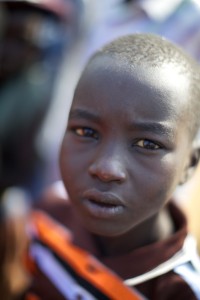
As an infant, Negasi fled with his mother across the border and spent the first 20 years of his life in a perilous, isolated camp in the Horn of Africa. His father was killed during the long fight for independence, leaving Negasi vulnerable to constant threats. He doesn’t remember ever feeling safe. He was repeatedly beaten and witnessed countless others being assaulted or killed. His childhood was filled with fear, never experiencing peace or a full night's rest. Deeply depressed, with severe symptoms of trauma, Negasi made several attempts to end his life.
Recovery
Upon resettling in the United States, Negasi continued to endure intense emotional pain. Although he was no longer in danger, he still could not find peace or sleep in his new surroundings. He struggled to manage his emotions, often overwhelmed with sadness, shame, anger, and a persistent desire to end his life. A central focus of his recovery was helping Negasi feel safe for the first time in his life, both with others and within himself. Over time, his sleep improved, his depression lifted, and his trauma-related anxiety decreased. After enduring decades of unthinkable hardship, just a few years after resettling, Negasi no longer found himself in crisis. He now has stable employment and is beginning to build a family.
Flight from Persecution: Carlos
Trauma 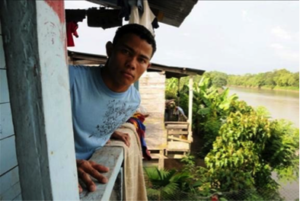
Growing up in a small Colombian town, Carlos was always seen as different from a very young age. He faced constant shame and harassment from male family members, and later from peers and others in his community. As he entered adolescence, the abuse intensified, and one day, a group of men attacked him in the street. He was severely beaten and left for dead, but after recovering in the hospital, he realized he could no longer stay in his home. At just 16 years old, Carlos decided to leave everything behind in search of safety, and it took him months to reach the United States border under perilous conditions.
Recovery
Having endured years of insecurity, Carlos struggled with chronic fear, anxiety, intrusive memories of the abuse, nightmares, and an inability to trust others. When he arrived in the San Francisco Bay Area, he was fortunate to receive pro bono legal support, and was granted asylum status, which helped improve his social and economic situation. However, he continued to suffer from severe post-traumatic stress symptoms. His attorney connected him with specialized psychological support, and Carlos began attending therapy. For the first time, he was able to speak about the rejection and persecution he had faced throughout his life, and began to feel hope for being accepted for who he truly was. Rebuilding his trust in others became the cornerstone of his healing journey. Due to his extreme trauma, Carlos had lost the ability to read and write, but with emotional support, he gradually regained these skills and learned English. With growing confidence and security, Carlos completed a professional training program, and today, he is a successful teacher and mentor in his field.


